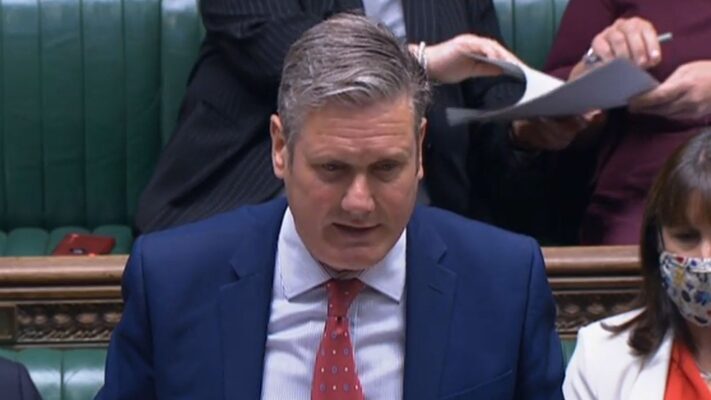 NATIONAL Insurance (NI) contributions will rise by 1.25% to pay for the broken social care system in a bid to end the “unpredictable and catastrophic costs” faced by many.
NATIONAL Insurance (NI) contributions will rise by 1.25% to pay for the broken social care system in a bid to end the “unpredictable and catastrophic costs” faced by many.
British Prime Minister Boris Johnson announced today that A social care package will be funded through a new, UK-wide 1.25% health and social care levy’ from April 2022.
The plan was signed off by ministers at a Cabinet meeting earlier after days of fury from Tory backbenchers.
The 1.25 percentage point increase is expected to raise about £12bn which, in the early years, will mainly be used to fund dealing with the NHS backlog.
This includes £2.2 billion a year for Scotland, Wales and the North of Ireland, as tax changes affect the whole of the UK.
A typical basic rate tax payer earning £24,100 will contribute an extra £180 per year.
Announcing the plans in the Commons, Boris Johnson said the costs of the programme will be split between individuals and businesses and “those who earn more will pay more” and that he believes the proposals are “reasonable”.
From October 2023, anyone with assets under £20,000 have their care costs fully covered by the state, while those with between £20,000 and £100,000 will be expected to contribute to their costs but will also receive state support.
He added that there will be a cap of £86,000 on what people will be asked to pay over their lifetime for care.
The increase will be used exclusively on health and social care, and will raise £36 billion over the next three years, the PM said.
He told MPs the measures will cap COVID backlogs in hospitals by increasing hospital capacity “to 110% and enabling 9 million more appointments, scans and operations”.
“As a result, while waiting lists will get worse before they get better, the NHS will aim to be treating around 30% more elective patients by 2024-2025 than before COVID, the PM said.
Johnson’s plan to overhaul the social care sector includes:
• A government pledge to invest £36 billion over the next three years to help the NHS recover from the pandemic.
• To also invest in reforming the social care sector.
• A promise that from October 2023, nobody will pay more than £86,000 for their social care – regardless of their assets.
• That the government will fully cover the cost of care for those with assets under £20,000, and contribute to the cost of care for those with assets of between £20,000 and £100,000.
Mr Johnson said he accepted that the measure breaks a Tory manifesto pledge not to hike national insurance, but that it was a necessary move due to COVID financial pressures.
“No Conservative government wants to raise taxes, I will be honest I accept this breaks a manifesto commitment. It is not something I do lightly but a global pandemic wasn’t in anyone’s manifesto,” the PM told MPs in the Commons.
“This is the right the reasonable and the fair approach. I think the people of this country understand that in their bones and they can see the enormous steps that this government and the Treasury have taken.”

Labour Leader Keir Starmer
“Let me spell that out – a poorly-paid care worker will pay more tax for the care that they are providing without a penny more in their pay packet and without a secure contract,” he said.
“The alternative is obvious: a timetable, a plan to clear waiting lists just as we did under the last Labour government, a comprehensive report planned for social care dealing with the inadequacies I have just pointed out, and driving up the equality of provision, and not just tinkering with the funding model.
“We do need to ask those with the broadest shoulders to pay more and that does include asking much more of wealthier people including income from stocks, from shares, from dividends and from property.”
Tags:





